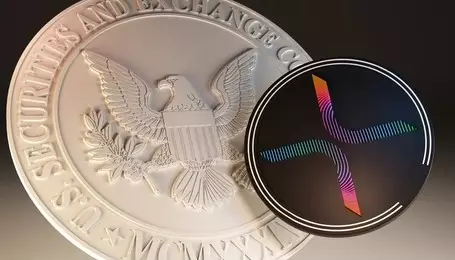Ripple, the blockchain-based payment protocol, has been in a heated legal battle with the US Securities and Exchange Commission (SEC) over the classification of its native cryptocurrency, XRP. In a recent interview with CNBC, Ripple CEO Brad Garlinghouse highlighted three consecutive victories for the company in the legal proceedings.
The first win came on July 13, when a judgment clearly stated that XRP is not a security. This ruling was seen as a significant milestone for Ripple as it provided strong legal ground for their argument. Garlinghouse also pointed out that the court denied the SEC’s interlocutory appeal, demonstrating its confidence in the initial ruling.
Furthermore, the court dismissed the allegations against Ripple co-founder Chris Larsen and Garlinghouse himself. This dismissal further strengthened Ripple’s position and undermined the SEC’s allegations.
During the interview, Garlinghouse openly criticized the SEC’s regulatory approach, specifically their tendency to enforce regulations through lawsuits. He argued that the SEC needs to step back and reassess their actions, as it feels they have deviated from their mission to protect investors.
Garlinghouse questioned who the SEC is truly protecting on this journey. He believes that the SEC’s actions have caused harm to Ripple and its investors. He called for a change in their regulatory approach and emphasized the need for regulatory clarity, utility, and scalable problem-solving in the industry.
Garlinghouse acknowledged the potential impact of an approved exchange-traded fund (ETF) on the cryptocurrency market. He recognized that it could bring significant capital and mainstream adoption to the industry. However, he highlighted that regulatory clarity should be a priority before any ETF is approved.
According to Garlinghouse, the industry needs clear regulations that outline the classification of cryptocurrencies like XRP. This clarity will not only attract more investors but also promote the growth and development of the industry as a whole.
In a separate development, pro-XRP lawyer John Deaton added his voice to the ongoing discussion surrounding Ripple and the SEC. Deaton argued that Ripple would not come close to paying the $770 million disgorgement demanded by the SEC.
Deaton pointed out that the SEC’s claim for disgorgement related to XRP sales in various jurisdictions, including the UK, Japan, and Switzerland, is flawed. In these jurisdictions, XRP is considered a non-security and a legal exchange/utility token. Therefore, the SEC’s attempt to disgorge sales made in those jurisdictions seems misguided.
Deaton further explained that the disgorgement amount would be significantly reduced after deducting non-US sales, sales to accredited investors, and considering the minimal harm caused by On-Demand Liquidity (ODL) transactions. He highlighted that a petition filed by 75,000 XRP holders supported Ripple’s position, claiming that the SEC, not Ripple, was causing harm.
The remarks made by Garlinghouse and Deaton underscore the significance of Ripple’s legal battle with the SEC. The outcome of this high-profile case could have significant implications for the cryptocurrency industry as a whole.
The classification of XRP as a security or a non-security will set a precedent for how regulators view and regulate cryptocurrencies. Additionally, if Ripple succeeds in defending its position, it could pave the way for other cryptocurrencies to challenge their regulatory classification.
As of the time of writing, XRP is trading at $0.660, exhibiting a sideways price movement. It has consolidated above a crucial level, indicating stability in the market. Despite the lack of significant price movement, XRP has experienced significant gains over the past 30 days and on a year-to-date basis.
Ripple’s ongoing legal battle with the SEC is a critical moment for the cryptocurrency industry. The outcome of this case will not only impact Ripple but also set a precedent for how cryptocurrencies are regulated in the future. Regulatory clarity and a fair approach to enforcement are essential for the industry to thrive and attract more mainstream adoption.



















